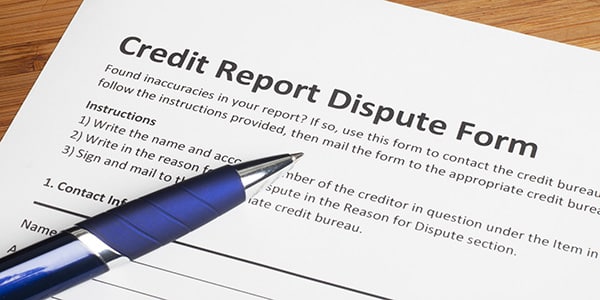Car loan refinancing can be a great way to reduce your monthly bills and save money as you pay off your car. A refinance loan is still a loan, however, so you’ll need to meet your lender’s requirements before you can be approved.
Your chances of approval, as well as getting the most favorable loan terms, depend on several factors, but your credit score and history play a big role.
Fortunately, there are many things that you can do to improve your credit before applying for auto refinancing. These include reviewing your credit reports and challenging errors, reducing your spending, keeping accounts open and not applying for new credit right before submitting your loan application.

1. Check Your Credit Reports
In a recent study on the accuracy of credit reports, one-third of study participants found errors on their reports.
These errors could result in a denial of your auto financing loan application or an approval with less favorable terms, such as a higher interest rate. (This higher rate can cost you more money over time, and you can see how much by using a refinance car loan calculator.)
Fortunately, you have the right to check your credit reports and to dispute inaccurate information. All consumers are entitled to free annual credit reports and, in many cases, can request another free report under certain circumstances.
It’s important to check your reports from all three major credit bureaus — TransUnion, Experian, Equifax — regularly, and particularly before you apply for car loan refinancing.
If you find errors, file disputes with the credit bureaus. Recheck your reports to confirm that your disputes were effective and that your credit history is accurate before beginning the refinancing process. Pay particular attention to the age of negative information on your credit reports.
If the information is more than seven years old, you might be able to have it removed. Exceptions to the seven-year rule include bankruptcies, which can remain on your reports for up to 10 years, and judgments, which, as long as they are unpaid, can stay on your report until the statute of limitations expires.
On the other hand, if you find that the negative information on your reports is accurate, there might be things you can do to address the situation. If you can, pay off your balances.
These accounts will update within a month or so, which might improve your credit score. You might also be able to work with creditors to settle your balances, which reduces your debt load but might negatively impact your credit score in other ways.

2. Don’t Close Accounts
This can be a tricky one, particularly if you are very careful with your spending. Although it might seem reasonable to want to close credit accounts that you are no longer using, doing so can have a negative impact on your credit score.
Credit scoring models consider several factors, including the age of your accounts as well as the amount of available credit that you are not using. Open accounts with low or no balances positively impact your credit. In addition, older accounts also impact your credit positively, as they show that you’ve been able to maintain an account for an extended period of time.
3. Don’t Make Any Large Purchases
Because your available credit has a significant impact on your credit score, it is wise to forgo other large purchases before refinancing your car — unless, of course, you plan to pay for the purchase in cash.
Taking out new or refi loans, or running up a large credit card bill, will affect your credit and reduce your chances of approval or getting a good rate.
4. Don’t Apply for Credit
Credit applications can result in what is known as a “hard pull” on your credit reports. This means that your credit history will show that you made a credit application. This can reduce your credit score.
If auto loan refinancing is in your near future, refrain from applying for other credit products now. Even if you easily qualify for loans or credit cards, the inquiries, plus the opening of new accounts, can have a negative impact on your creditworthiness.
Be aware, however, that not all credit checks result in a hard pull or hard inquiry on your report. Some checks, also called “soft pulls,” are performed by utility companies, employers or banks that are considering you for a preapproval offer.
These do not impact your credit score. If you are unsure about whether a business or organization is performing a hard or soft inquiry, ask before you consent to a credit check.

Take Steps to Improve Your Credit Today
Getting your credit in order before applying for a refinance loan doesn’t have to be incredibly complicated, but it can take time — particularly if you must dispute information in your report or wait for your information to be updated. Planning ahead can be your best option for a successful auto loan refinance.

